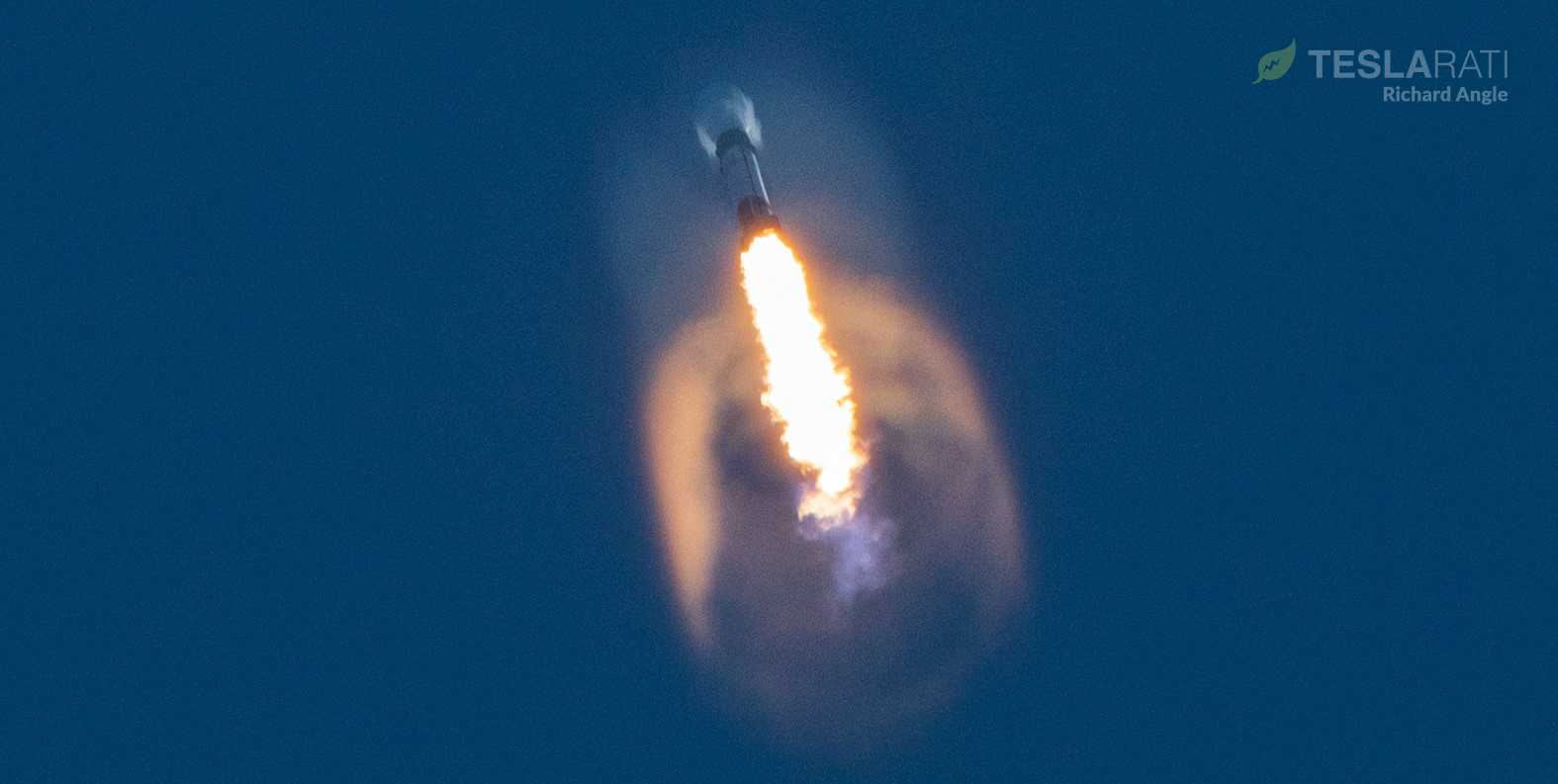
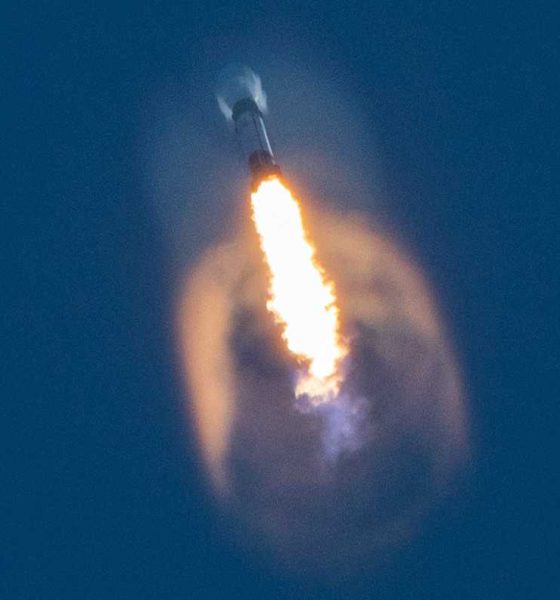
News
SpaceX's in-flight rocket engine failure threatens NASA astronaut launch debut
An in-flight rocket engine failure during SpaceX’s March 18th Starlink launch could pose a threat to the company’s imminent NASA astronaut launch debut according to a statement provided by the space agency yesterday.
SpaceX and NASA are currently working around the clock to prepare a Falcon 9 rocket and Crew Dragon spacecraft for the company’s inaugural astronaut launch, a flight known as Demonstration Mission 2 (Demo-2/DM-2). All launch vehicle and spacecraft hardware – including booster B1058, an expendable upper stage, a spacecraft trunk, and the Crew Dragon capsule itself – are already believed to be at SpaceX’s Florida launch and processing facilities.
Prior to March 18th, the biggest gating items were believed to be a few final parachute tests and a whole lot of paperwork and reviews, as well as some important but less showstopping astronaut training. Unfortunately, SpaceX has suffered two unforeseen issues of varying severity in the last few days, both of which are now all but guaranteed to impact Crew Dragon’s astronaut launch debut schedule.
“According to the CCtCap contracts, SpaceX is required to make available to NASA all data and resulting reports. SpaceX, with NASA’s concurrence, would need to implement any corrective actions found during the investigation related to its commercial crew work prior to its flight test with astronauts to the International Space Station. NASA and SpaceX are holding the current mid-to-late May launch timeframe, and would adjust the date based on review of the data, if appropriate.”
NASA — March 25th, 2020
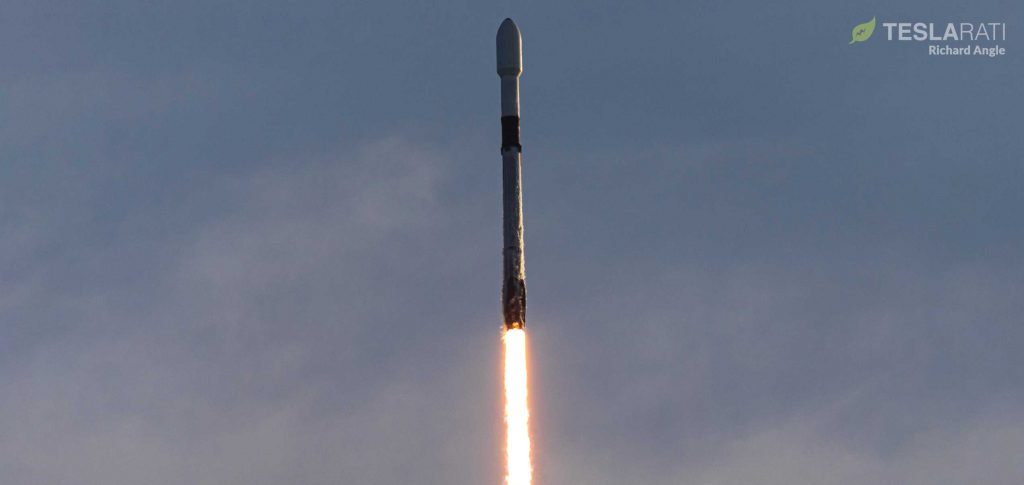
On March 18th, less than three minutes after liftoff and shortly before stage separation was scheduled, Falcon 9 booster B1048 – on its historic fifth launch attempt – suffered an engine failure visible on SpaceX’s official webcast. By all appearances, Falcon 9’s autonomous flight computer accounted for the engine’s failure, shutdown, and the resultant loss of thrust by burning B1048’s eight remaining engines for several seconds longer than planned.
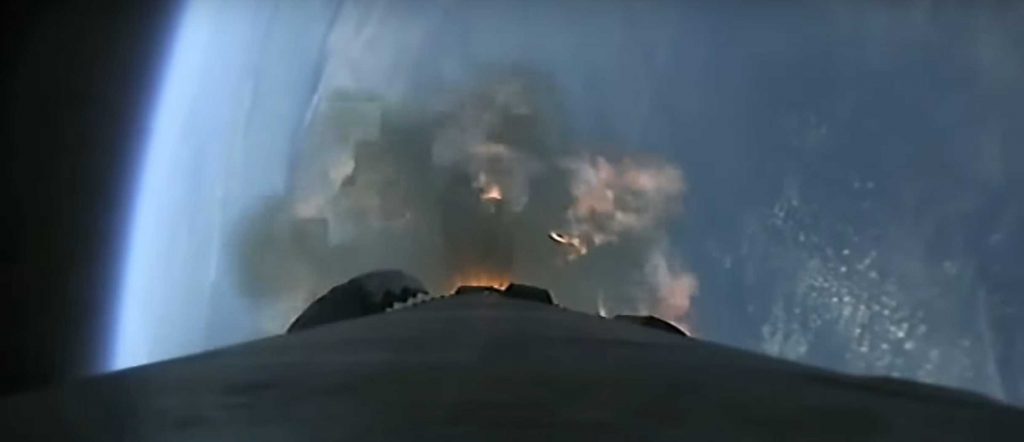
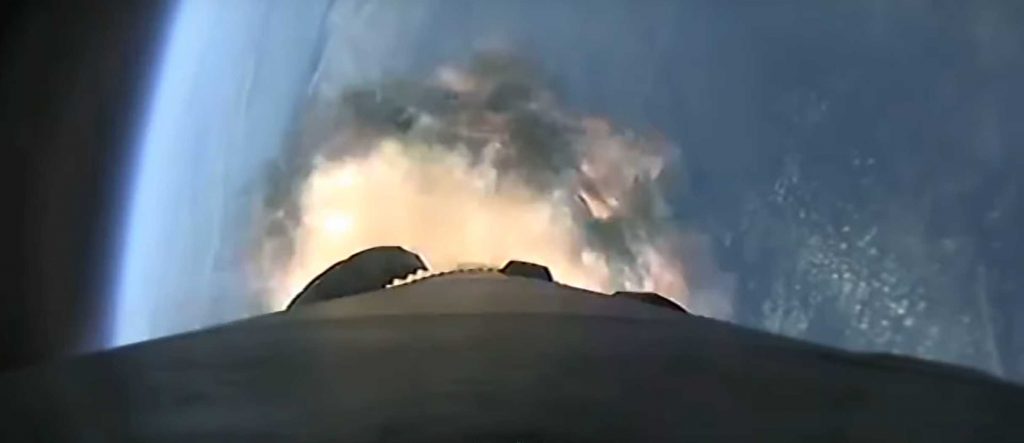
While that extra few seconds of burn time likely ensured that the rocket’s upper stage was able to make it to the correct orbit after stage separation, roughly five minutes after B1048’s extremely rapid engine failure, contact was lost. For the first time ever, there were no landing burn-related call-outs from SpaceX launch operators, the first sign that something was seriously wrong. A few minutes later, SpaceX’s webcast hosts acknowledged that the booster had been lost, perhaps lacking the propellant it needed to attempt a landing.
For reference, Merlin 1D engines likely consume some ~270 kg (600 lb) of fuel each second. Falcon 9’s landing propellant reserves are believed to be on the order of 50+ metric tons (110,000 lb). Excluding the failed engine, eight Merlin 1Ds burning at full thrust for an additional 5 seconds would consume 20% of the propellant needed for landing; 10 seconds and it would use 40%.
The anomaly was Merlin 1D engine’s first in-flight failure ever. The 2012 failure of one of an original Falcon 9 V1.0’s rocket’s nine Merlin 1C engines is SpaceX’s only other in-flight failure.
It’s likely that B1048’s engine failure was primarily related to the fact that the booster was SpaceX’s pathfinder for a fifth-flight reusability milestone, making it the most reused rocket booster ever launched. NASA currently requires all of its Crew Dragon missions to launch on new Falcon 9 rockets, hopefully mitigating direct corollaries between the Starlink L6 anomaly and astronaut launches. Regardless, the space agency says that the company will now have to complete its internal failure review and implement necessary hardware, software, or rule changes before it’s allowed to launch NASA astronauts.
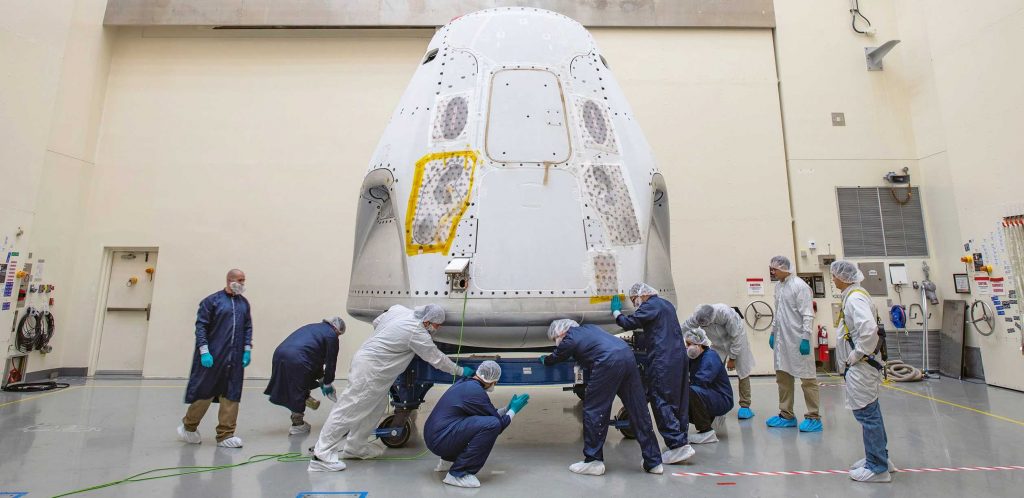
That investigation could take a matter of weeks, possibly even less, but it’s entirely possible that it could take months – let alone fixing the problems that allowed the in-flight Merlin 1D engine failure to happen in the first place. Ultimately, it will almost certainly make even the first flights of Falcon 9 and Heavy rocket boosters safer, but it could substantially delay SpaceX’s Demo-2 astronaut launch debut. Still targeted no earlier than (NET) mid-to-late May 2020, it’s safe to say that it’s reasonable to expect that schedule to slip over the next 4-6 weeks. Stay tuned for updates.

News
Tesla wins another award critics will absolutely despise
Tesla earned an overall score of 49 percent, up 6 percentage points from the previous year, widening its lead over second-place Ford (45 percent, up 2 points) to a commanding 4-percentage-point gap. The company also excelled in the Fossil Free & Environment category with a 50 percent score, reflecting strong progress in reducing emissions and decarbonizing operations.

Tesla just won another award that critics will absolutely despise, as it has been recognized once again as the company with the most sustainable supply chain.
Tesla has once again proven its critics wrong, securing the number one spot on the 2026 Lead the Charge Auto Supply Chain Leaderboard for the second consecutive year, Lead the Charge rankings show.
NEWS: Tesla ranked 1st on supply chain sustainability in the 2026 Lead the Charge auto/EV supply chain scorecard.
“@Tesla remains the top performing automaker of the Leaderboard for the second year running, and increased its overall score by 6 percentage points, while Ford only… pic.twitter.com/nAgGOIrGFS
— Sawyer Merritt (@SawyerMerritt) March 4, 2026
This independent ranking, produced by a coalition of environmental, human rights, and investor groups including the Sierra Club, Transport & Environment, and others, evaluates 18 major automakers on their efforts to build equitable, sustainable, and fossil-free supply chains for electric vehicles.
Tesla earned an overall score of 49 percent, up 6 percentage points from the previous year, widening its lead over second-place Ford (45 percent, up 2 points) to a commanding 4-percentage-point gap. The company also excelled in the Fossil Free & Environment category with a 50 percent score, reflecting strong progress in reducing emissions and decarbonizing operations.
Perhaps the most impressive achievement came in the batteries subsection, where Tesla posted a massive +20-point jump to reach 51 percent, becoming the first automaker ever to surpass 50 percent in this critical area.
Tesla achieved this milestone through transparency, fully disclosing Scope 3 emissions breakdowns for battery cell production and key materials like lithium, nickel, cobalt, and graphite.
The company also requires suppliers to conduct due diligence aligned with OECD guidelines on responsible sourcing, which it has mentioned in past Impact Reports.
While Tesla leads comfortably in climate and environmental performance, it scores 48 percent in human rights and responsible sourcing, slightly behind Ford’s 49 percent.
The company made notable gains in workers’ rights remedies, but has room to improve on issues like Indigenous Peoples’ rights.
Overall, the leaderboard highlights that a core group of leaders, Tesla, Ford, Volvo, Mercedes, and Volkswagen, are advancing twice as fast as their peers, proving that cleaner, more ethical EV supply chains are not just possible but already underway.
For Tesla detractors who claim EVs aren’t truly green or that the company cuts corners, this recognition from sustainability-focused NGOs delivers a powerful rebuttal.
Tesla’s vertical integration, direct supplier contracts, low-carbon material agreements (like its North American aluminum deal with emissions under 2kg CO₂e per kg), and raw materials reporting continue to set the industry standard.
As the world races toward electrification, Tesla isn’t just building cars; it’s building a more responsible future.
News
Tesla Full Self-Driving likely to expand to yet another Asian country
“We are aiming for implementation in 2026. [We are] doing everything in our power [to achieve this],” Richi Hashimoto, president of Tesla’s Japanese subsidiary, said.

Tesla Full Self-Driving is likely to expand to yet another Asian country, as one country seems primed for the suite to head to it for the first time.
The launch of Full Self-Driving in yet another country this year would be a major breakthrough for Tesla as it continues to expand the driver-assistance program across the world. Bureaucratic red tape has held up a lot of its efforts, but things are looking up in some regions.
Tesla is poised to transform Japan’s roads with Full Self-Driving (FSD) technology by 2026.
Richi Hashimoto, president of Tesla’s Japanese subsidiary, announced the ambitious timeline, building on successful employee test drives that began in 2025 and earned positive media reviews. Test drives, initially limited to the Model 3 since August 2025, expanded to the Model Y on March 5.
Once regulators approve, Over-the-Air (OTA) software updates could activate FSD across roughly 40,000 Teslas already on Japanese roads. Japan’s orderly traffic and strict safety culture make it an ideal testing ground for autonomous driving.
Hashimoto said:
“We are aiming for implementation in 2026. [We are] doing everything in our power [to achieve this].”
The push aligns with Hashimoto’s leadership, which has been credited for Tesla’s sales turnaround.
In 2025, Tesla delivered a record 10,600 vehicles in Japan — a nearly 90% jump from the prior year and the first time exceeding 10,000 units annually.
BREAKING 🇯🇵 FSD IS LIKELY LAUNCHING IN JAPAN IN 2026 🚨
Richi Hashimoto, President of Tesla’s Japanese subsidiary, stated: “We are aiming for implementation in 2026” and added that they are “doing everything in our power” to achieve this 🔥
Test drives in Japan began in August… pic.twitter.com/jkkrJLszXN
— Ming (@tslaming) March 5, 2026
The strategy shifted from online-only sales to adding 29 physical showrooms in high-traffic malls, plus staff training and attractive financing offers launched in January 2026. Tesla also plans to expand its Supercharger network to over 1,000 points by 2027, boosting accessibility.
This Japanese momentum reflects Tesla’s broader international expansion. In Europe, Giga Berlin produced more than 200,000 vehicles in 2025 despite a temporary halt, supplying over 30 markets with plans for sequential production growth in 2026 and battery cell manufacturing by 2027.
While regional EV sales faced headwinds, the factory remains a cornerstone for Model Y deliveries across the continent.
In Asia, Giga Shanghai continues to be recognized as Tesla’s powerhouse. China, the company’s largest market, saw January 2026 deliveries from the plant rise 9 percent year-over-year to 69,129 units, with affordable new models expected later this year.
FSD advancements, already progressing in the U.S. and South Korea, are slated for Europe and further Asian rollout, complementing plans to expand Cybercab and Optimus to new markets as well.
With OTA-enabled autonomy on the horizon and retail strategies paying dividends, Tesla is strengthening its footprint from Tokyo showrooms to Berlin assembly lines and Shanghai exports. As Hashimoto continues to push Tesla forward in Japan, the company’s global vision for sustainable, self-driving mobility gains traction across Europe and Asia.
News
Tesla ships out update that brings massive change to two big features
“This change only updates the name of certain features and text in your vehicle,” the company wrote in Release Notes for the update, “and does not change the way your features behave.”

Tesla has shipped out an update for its vehicles that was caused specifically by a California lawsuit that threatened the company’s ability to sell cars because of how it named its driver assistance suite.
Tesla shipped out Software Update 2026.2.9 starting last week; we received it already, and it only brings a few minor changes, mostly related to how things are referenced.
“This change only updates the name of certain features and text in your vehicle,” the company wrote in Release Notes for the update, “and does not change the way your features behave.”
The following changes came to Tesla vehicles in the update:
- Navigate on Autopilot has now been renamed to Navigate on Autosteer
- FSD Computer has been renamed to AI Computer
Tesla faced a 30-day sales suspension in California after the state’s Department of Motor Vehicles stated the company had to come into compliance regarding the marketing of its automated driving features.
The agency confirmed on February 18 that it had taken a “corrective action” to resolve the issue. That corrective action was renaming certain parts of its ADAS.
Tesla discontinued its standalone Autopilot offering in January and ramped up the marketing of Full Self-Driving Supervised. Tesla had said on X that the issue with naming “was a ‘consumer protection’ order about the use of the term ‘Autopilot’ in a case where not one single customer came forward to say there’s a problem.”
This was a “consumer protection” order about the use of the term “Autopilot” in a case where not one single customer came forward to say there’s a problem.
Sales in California will continue uninterrupted.
— Tesla North America (@tesla_na) December 17, 2025
It is now compliant with the wishes of the California DMV, and we’re all dealing with it now.
This was the first primary dispute over the terminology of Full Self-Driving, but it has undergone some scrutiny at the federal level, as some government officials have claimed the suite has “deceptive” names. Previous Transportation Secretary Pete Buttigieg was one of those federal-level employees who had an issue with the names “Autopilot” and “Full Self-Driving.”
Tesla sued the California DMV over the ruling last week.








